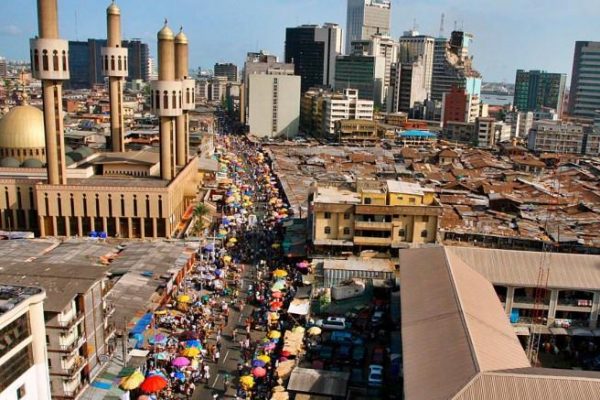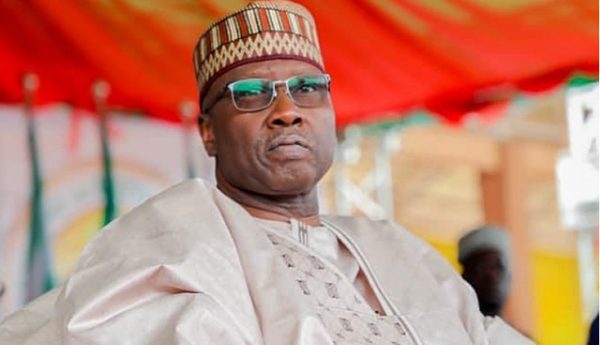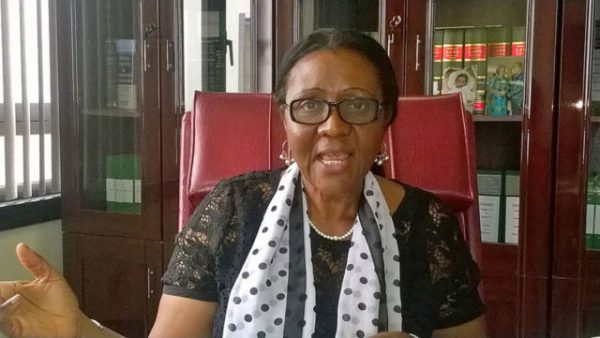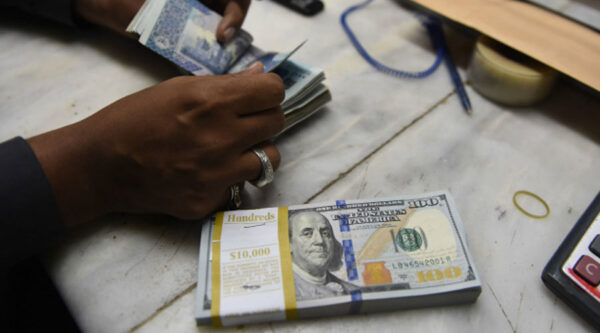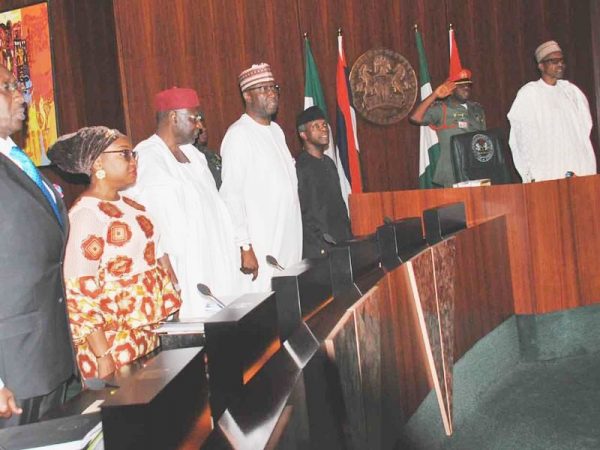NEWS LENS
2022: Economists Predict Higher Inflation, More Fiscal Challenges
* 2023 elections to disrupt national economy, subsidy removal, MDAs
* Experts perplexed by FG’s increased borrowing
By Kenneth Jukpor
Despite an economic growth of 2.5% projected for Nigeria’s economy in 2022 by the World Bank, experts predict higher inflation and more fiscal challenges for businesses, especially Small and Medium-sized Enterprises (SMEs).
Nigeria’s rising debts, monetary policies and foreign exchange fluctuations, logistics and transport challenges have also been highlighted as major problems in the country as disposable income is expected to dwindle.
While the Petroleum Industry Act (PIA), removal of subsidy on Premium Motor Spirit (PMS), insecurity, unstable global oil prices and the electioneering activities ahead of 2023 presidential polls, among others, are expected to define the nation’s economy in 2022; economists also fear disruptions and possible uproars on national economic issues.
On its part, the federal government has tilted towards excessive taxation in a bid to generate the 2022 national budget of N17.1trillion with the Nigeria Customs Service (NCS) expected to generate N4.1trillion which is 23.9% of the nation’s budget.
Speaking with MMS Plus, an economic expert and Chairman of the Nigerian Ports Consultative Council (PCC), Otunba Kunle Folarin said the 2022 budget shows that the government is very optimistic of its performance and revenue generation.
“Government is likely to increase cost in a bid to shore up revenue generation. This would lead to higher inflation because taxes would go up and we can expect some fiscal effects on the nation’s economy, including transportation, food and other sectors. How does Nigeria intend to fund its N17.1trillion budget? This huge expenditure profile means that the country is looking at generating funds through borrowing, raising taxes, among others. Nevertheless, we have to also look at how these actions affect the economy.”
“The fear is that government’s attempt to generate revenue for the 2022 budget means it would have to make tough fiscal policies. For example the Federal Inland Revenue Service (FIRS), Nigeria Customs Service (NCS), among other parastatals have been given directives and targets to generate revenue. We are looking at a situation where liquidity will be grossly affected and disposable income would reduce. Consequently, the economy wouldn’t be able to service the fiscal issues from inflation,” Otunba Folarin said.
Meanwhile, he lamented that Nigeria is getting to a situation where it would be difficult to service its debts, stressing that it is time to start looking at new ways of generating money rather than borrowing.
“Despite the fact that Nigeria has borrowed so much money, some commentators argue that the nation has under-borrowed; but I disagree. If we continue to borrow, what’s the interest rate and what’s the strategy to repay these loans? What were the conditions of these loans and what’s the performance of the loans compared with the interest rate? We must also look at the timeline for the money to be returned,” he said.
Similarly, the Chief Executive Officer of the Financial Derivatives Nigeria Company, Mr. Bismarck Rewane has shared some reservations on the nation’s debt profile, even as he lamented that alarm bells are going off on the nation’s huge borrowing.
Rewane, who was the keynote speaker on Thursday at a webinar organiszed by First Bank Plc on Nigerian Economic Outlook for 2022, lamented that the nation may be creating debts for the next generation with projected increase in interests on the foreign loans.
“We are within borrowing range; but we borrowed money to do what? Which sectors benefitted from the huge loans? Are we creating debts for the next generation? Did we invest in assets with the funds? Some of the loans were also utilized for petrol subsidy and debt servicing”
Noting that loans should be for infrastructure investments with good return on investment (RoI), Rewane lamented that some of the loans were consumed and others leaked; adding that over 23% of those who accessed government intervention funds made away with the money.
“There are concerns about Nigeria’s borrowing from China if we default. Oil prices will be volatile in 2022. Deficit budget will be funded by subsidy removal, but government must reduce stealing and utilize funds rightly. Otherwise, there will be uproar via strikes and protests until people get what they want,” Rewane said.
He also projected a 13.3% increase in inflation rate for the nation, adding that activities like airport concession, Dangote Refinery, 5G adoption, Nigeria Air, affordable housing, could also define economic activities this year.
Reflecting on 2021, Rewane noted that the naira dropped by 20.43% at the parallel market and 6.03% at the official window. He noted that while the average oil price went up 63.88% to $70.96 per barrel, average oil production went down by 12.5% to 1.4 million barrels per day.
He added that the average Gross Domestic Product (GDP) in the nine months of 2021 was 3.18 per cent, compared to 2.62 per cent in the same period of 2020.
The economist added that Nigeria was still the country with the fourth highest unemployment rate in Africa at 33.3 per cent, with a misery index of 50.41 per cent. He stated that inflation had affected consumers’ purchasing power and 93.9 million people were still in the threshold of poverty.
On his part, the Chief Executive Officer (CEO) of RTC Advisory Services Limited Opeyemi Agbaje said Nigeria would not achieve growth in 2022 with inflation on the rise.
Agbaje said: “There is incoherence around monetary policies like interest and exchange rates. Everything is going in the wrong direction and I think the reason is that we have not focused on the fundamentals. If we can get growth and investment flowing in again and our policy environment stable, then inflation can come down.”
Rewane, supporting him, added, “We don’t want taxation, high unemployment and low output, that could be game over. We only have weeks, not months to get it right.”
Meanwhile, the immediate past Director-General of Lagos Chamber of Commerce and Industry (LCCI), Dr. Muda Yusuf maintained that the problem of insecurity remains a significant risk to the economy and the impact on some sectors, especially the Agricultural sector will be profound in 2022.
Muda, who is also the Chief Executive Officer, Centre for the Promotion of Private Enterprise (CPPE), asserted that there are concerns about the effects on the perception of Nigeria as an investment destination and implications for country’s risk rating.
According to him, monetary and foreign exchange policy rigidities also pose a risk to the growth outlook as there are no indications of any significant shift in monetary and foreign exchange policy stance in the near term.
“The distortions inherent in the foreign exchange market will persist in 2022. The constraining effect of the high Cash Reserve Requirement [CRR] on financial intermediation would also persist in 2022 with a dampening effect on growth outlook,” he said.
Muda opined that investors will grapple with the barriers to international trade experienced in 2021, especially problems relating to the Lagos ports, such as the traffic gridlock, port congestion, bureaucratic documentation processes, extortions and the prohibitive charges by terminal operators and shipping companies.
Speaking on the impact of the electioneering processes on the nation’s economy, he asserted that intense electioneering activities will cause serious distractions for political office holders at all levels as they struggle to retain power during the elections.
“This will adversely impact the economy and the investment environment as considerable attention and resources are committed to the electioneering activities in 2022. The aggressive drive for revenue by agencies of government will put enormous pressures on investors in 2022. Beyond the regular tax authorities, other agencies of government may become more aggressive in their revenue drive. This will constitute an additional burden to investors in 2022,” he said.
He argued that the burden of petroleum subsidies on government finances may persist in 2022 despite the PIA as it is doubtful that the government will be able to exercise the political will to effect the removal of petroleum subsidy given the impending 2023 elections.
“On account of political exigencies and push back by the ruling party and labour, the economy may have to bear the heavy fiscal burden of subsidy in 2022. This also signals delays in the full implementation of the PIA and reform of the downstream oil sector. However, if the Dangote refinery comes on stream in 2022, the fiscal pressure may abate, but not completely eliminated.
The pressure of debt service on government finances will persist in 2022 and beyond. Total public debt as at 30th September 2021 was N38 trillion or $92.6 billion, according to the Debt Management Office. The 2022 Budget provided for the sum of N3.88 trillion as debt service. This is a substantial amount when compared with the capital budget provision of N5.46 trillion. Debt service payment is typically a first line charge in budget releases. The ambitious budget size of N17.1 trillion and the unpredictable revenue outlook elevates the risk of higher fiscal deficit than projected,” Muda posited.
Otunba Folarin also noted that in 2022, as a pre-election year, the government would be looking at making money for elections even as election cost is also captured in the 2022 budget.
“When you look at the cost of elections not only from the government but also the individual players and political parties, you discover that they are all bent on raising necessary funds.
Most political parties are doing this by introducing a lot of charges for those who want to contest elections. This suggests that we are going to have a high-wired year in this pre-election year.
It’s also important to understand that the agencies of government are the focal points of raising funds for government and these agencies would be under severe pressure to raise funds directly for the government and indirectly to support individuals. When this combination comes into play, we are going to have a dire situation where political parties will be expecting government agencies to raise funds for their activities,” he said.

